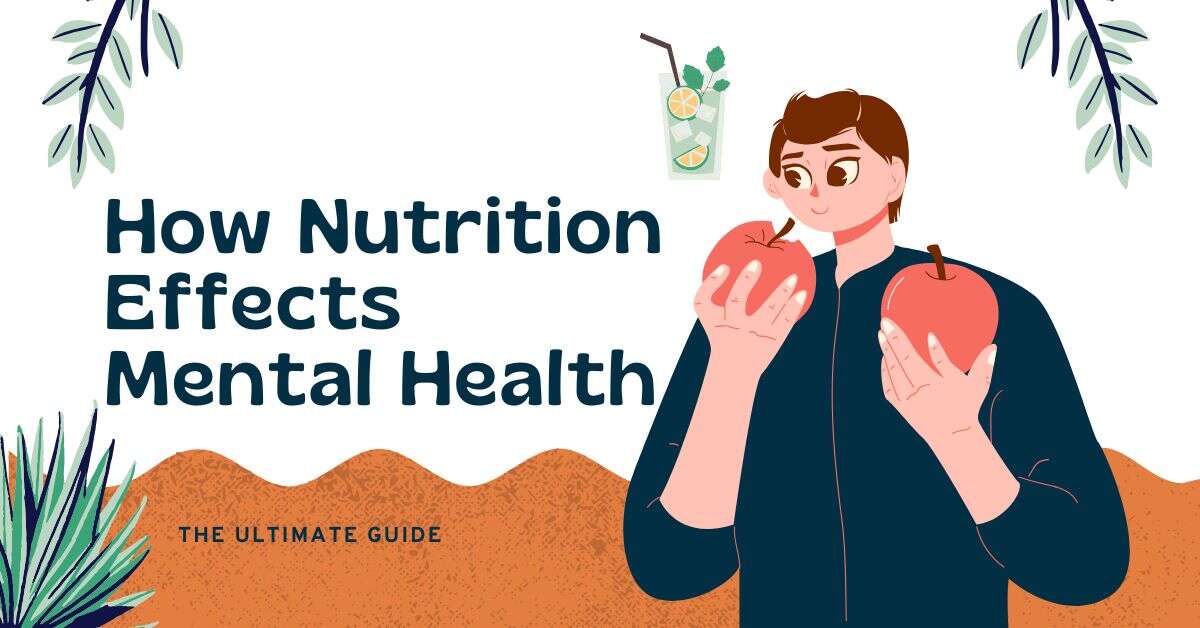Introduction
The connection between what we eat and how we feel is stronger than most people realize. The food we consume provides essential nutrients that influence brain function, mood regulation, and mental well-being. Research suggests that a well-balanced diet can help prevent and manage mental health disorders, while a poor diet may increase the risk of conditions such as depression and anxiety. In this blog, we explore how nutrition affects mental health, breaking down the key nutrients involved, their impact on the brain, and the best dietary practices to support mental well-being.
The Science Behind Nutrition and Mental Health
Scientific studies have established a strong correlation between nutrition and mental health. According to a 2017 study published in the journal BMC Medicine, individuals following a Mediterranean diet rich in whole foods, healthy fats, and lean proteins had a 30% lower risk of depression compared to those consuming a processed diet. Similarly, a review in The Lancet Psychiatry highlighted that dietary patterns influence neurotransmitter production, inflammation, and gut microbiota, all of which play critical roles in mental health.
Nutrients That Play a Role in Mental Health
- Omega-3 Fatty Acids
Present in fatty fish, flaxseeds, and walnuts, omega-3 fatty acids are crucial for maintaining brain health and reducing inflammation. A comprehensive meta-analysis published in Translational Psychiatry revealed that omega-3 supplementation could reduce symptoms of depression by approximately 17%. - B Vitamins (Especially B6, B9, and B12)
B vitamins are vital for neurotransmitter function and help lower homocysteine levels, which have been linked to increased depression risk. Research published in the American Journal of Clinical Nutrition indicated that older adults with low levels of vitamin B12 experienced a 21% higher risk of depression. - Magnesium
This mineral plays a significant role in regulating stress and anxiety by modulating the hypothalamic-pituitary-adrenal (HPA) axis. A study featured in Nutrients highlighted that magnesium deficiency is commonly observed in individuals suffering from anxiety disorders. - Antioxidants (Vitamins C & E, Selenium)
Antioxidants help combat oxidative stress, a factor associated with depression and neurodegenerative diseases. Higher intake of antioxidants has been correlated with a decreased incidence of anxiety and cognitive decline. - Probiotics and Gut Health
The gut-brain axis serves as a crucial pathway that influences mental health. A balanced gut microbiome contributes to the production of serotonin, the key neurotransmitter responsible for mood regulation. A 2019 study published in Psychiatry Research demonstrated that probiotic supplementation can lead to improvements in symptoms of depression and anxiety. - Vitamin D
Often referred to as the "sunshine vitamin," vitamin D is essential for brain function and emotional regulation. Studies have found that individuals with low levels of vitamin D are at a higher risk of developing mood disorders such as depression. Supplementation can help enhance mood and overall mental well-being. - Zinc
Zinc is involved in numerous brain functions, including synaptic plasticity and neurotransmitter release. Research suggests that zinc deficiency may be linked to increased symptoms of depression and anxiety. Supplementation has shown potential in alleviating these symptoms and promoting mental wellness. - Iron
An essential mineral, iron is vital for oxygen transport within the body and is necessary for optimal brain function. Low iron levels have been associated with fatigue and impaired cognitive performance, both of which can negatively affect mood. Ensuring adequate iron intake through dietary sources can support mental health. - Amino Acids (Tryptophan, Tyrosine)
Amino acids are the building blocks of proteins and play a critical role in producing neurotransmitters. Tryptophan is a precursor to serotonin, while tyrosine is essential for dopamine production. Adequate intake of protein-rich foods can facilitate the synthesis of these neurotransmitters, thereby positively influencing mood and mental health.
By recognizing the impact of these nutrients on mental health, individuals can make informed dietary choices to support their mental well-being. Incorporating a variety of nutrient-dense foods into one's diet not only nourishes the body but also fosters a healthier mind.
How Different Diets Impact Mental Health
| Diet Type | Mental Health Benefits | Potential Risks |
|---|---|---|
| Mediterranean Diet | Reduces depression risk, enhances brain function | Few risks, but may be costly for some |
| Western Diet (Processed Foods, High Sugar) | Associated with higher rates of depression and anxiety | Increased inflammation, cognitive decline |
| Ketogenic Diet | May improve cognitive function and mood | Can be restrictive, may cause initial fatigue |
| Vegetarian/Vegan Diet | Linked to lower anxiety levels | Potential B12 deficiency risk |
Enhancing Mental Health Through Nutrition: Practical Tips
1. Prioritize Whole Foods Over Processed Foods
The composition of your diet can have profound effects on mental health. Ultra-processed foods that contain high levels of refined sugars, unhealthy trans fats, and artificial additives have been linked to increased rates of depression and anxiety disorders. Instead, focus on consuming whole foods. These include whole grains, lean proteins, fresh fruits, and vegetables, as well as healthy fats such as avocados and olive oil. These whole foods not only nourish the body but also support a balanced mood and cognitive function, helping to combat feelings of anxiety and depression.
2. Increase Omega-3 Intake
Omega-3 fatty acids are essential for brain health and have been shown to play a role in reducing symptoms of depression. To incorporate these crucial nutrients into your diet, aim to consume fatty fish at least twice a week—options like salmon, sardines, and mackerel are excellent sources. If you follow a vegetarian or vegan diet, consider plant-based alternatives, such as flaxseeds, chia seeds, and walnuts, which are rich in alpha-linolenic acid (ALA), a type of omega-3. Regular intake of these foods can help improve mood and cognitive performance.
3. Support Gut Health with Probiotics and Prebiotics
The connection between gut health and mental health is gaining recognition, primarily through the gut-brain axis, which influences mood regulation. Eating probiotic-rich foods, such as yogurt, kefir, sauerkraut, and kimchi, can help maintain a healthy gut microbiome. Additionally, incorporate prebiotic foods—fiber-rich options like garlic, onions, bananas, and asparagus—which serve as nourishment for beneficial gut bacteria. This symbiotic relationship can enhance overall gut health, subsequently supporting your mental well-being.
4. Stay Hydrated for Mental Clarity
Hydration plays a crucial role in maintaining mental clarity and emotional stability. Even mild dehydration can lead to mood swings, fatigue, and cognitive impairment. Aim to drink at least eight glasses of water daily, adjusting based on your activity level and climate. Additionally, it is wise to moderate your intake of caffeine and alcohol, as they can contribute to dehydration. A well-hydrated brain is essential for optimal mental function and emotional balance.
5. Consider Professional Nutrition Coaching
If you find it challenging to establish a diet that supports your mental health, seek the advice of a professional nutrition coach. Personalized guidance can be instrumental in learning how to balance your nutrients effectively and tailor your diet to meet your individual mental health needs. A nutrition coach can help you identify specific dietary patterns, restrictions, and preferences, paving the way towards improved mental clarity and overall well-being.
Understanding how nutrition affects mental health is crucial for improving overall well-being. A nutrient-rich diet supports brain function, stabilizes mood, and reduces the risk of depression and anxiety. By prioritizing whole foods, omega-3s, gut-friendly probiotics, and essential vitamins, you can take proactive steps toward better mental health. If you're looking for personalized dietary recommendations, nutrition coaching can provide the expertise and guidance you need for sustainable mental wellness.



No Comments.